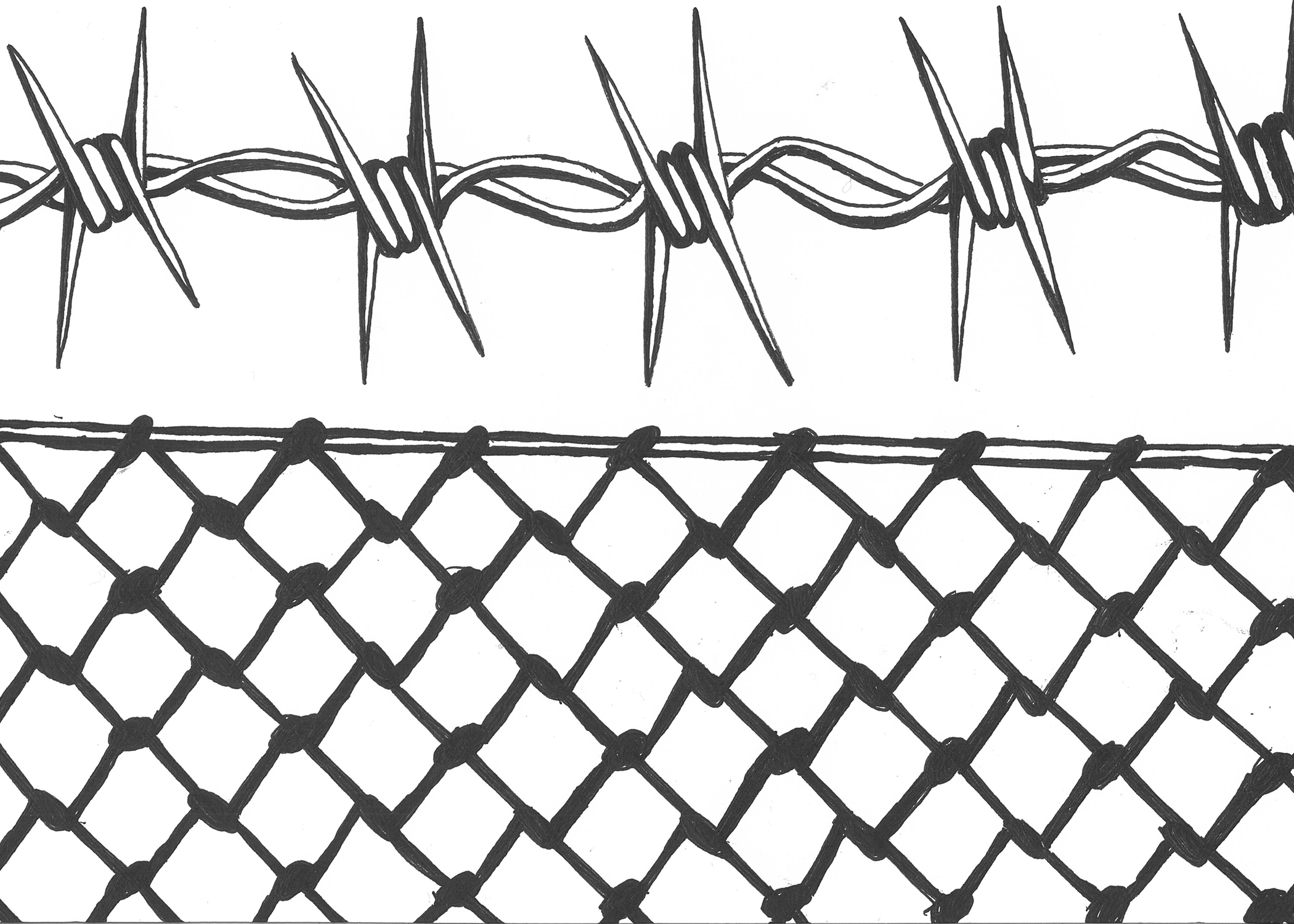The editorial board is the official opinion of The Georgetown Voice. The editorial board operates independently of the Voice’s newsroom and the General Board. The board’s editorials reflect the majority opinion of the board’s members, who are listed on the masthead. The editorial board strives to provide an independent view on issues pertinent to Georgetown University and the broader D.C. community, based on a set of progressive institutional values including anti-racism, trauma-informed reporting, and empathetic and considerate journalism.
There is no doubt in the mind of The Georgetown Voice’s Editorial Board that Israel has been committing genocide in Gaza. If over two years of well-documented crimes against humanity, governmental pronouncements of genocidal intent, collective punishment, and indiscriminate violence haven’t convinced someone, the declaration from the International Association of Genocide Scholars and a United Nations Human Rights Council report likely won’t either. Pointing to the most recent report or horrific video depicting some new act of gratuitous violence in an attempt to convince genocide deniers misses the point; for some, Palestinian life simply doesn’t hold that kind of weight. There is no critical mass or breaking point at which elites—including the administrative elite at Georgetown—will suddenly reform their conscience.
That statement is as accurate now as it was at the height of Israel’s violence in January 2024. The recent ‘ceasefire’ should not be taken as a sign that our leaders are finally coming around. That was not true during the first ceasefire, nor the second—both of which Israel violated repeatedly—and it is no more true now as they continue to inflict violence. The current ceasefire does nothing to solve Israel’s decades-long settler colonial project and apartheid system (it may even serve to entrench further or exacerbate these issues). The urgency with which we treat the Palestinian cause should be as great as ever; the dire situation in Gaza did not disappear once hostilities ostensibly ended on Oct. 10. Israel continues to block aid from entering the strip, demolish infrastructure, and commit violence against citizens, all of which constitute violations of the ceasefire, some just hours after its announcement. Needless to say, the humanitarian disaster remains with no clear end in sight under the present framework, which is to say nothing of the reparations the Palestinians are due.
We must ask ourselves why every person murdered in Gaza or the West Bank does not elicit the same righteous anger (and frenzied whitewashing of his bigotry and divisiveness) that erupted after the assassination of Charlie Kirk. Where were the bipartisan denouncements against political violence when the first human being in Palestine was ripped apart by a bomb proudly proclaiming “Made In The U.S.”? While some—certainly not all—members of Congress have half-heartedly called for a “pause” in the violence at some point, the vast majority of them were simultaneously voting to arm Israel. The morally bankrupt acts of our representatives made Americans complicit in this genocide. That should enrage and galvanize something in all of us. Sadly, at Georgetown, that’s not what we see.
The term “Georgetown Bubble” fails to capture the scale of the apathy that some Georgetown students and administrators feel towards their role in one of the world’s most pressing humanitarian and moral crises. Of course, Georgetown is not unique among educational institutions in the United States. It has good company among other ‘elite’ schools across much of the West, which also exist in contradiction of their values.
In July, we saw Georgetown’s administration make its hypocrisy clear when Interim President Robert Groves testified to Congress about antisemitism on campus. He was the latest university president to come under fire in a series of political spectacles that began after the spring 2024 protests at Columbia University. You may have seen videos of Republican Rep. Elise Stefanik feigning righteous fury as university presidents from Columbia, Harvard, and the University of Pennsylvania, among others, stumbled over the scripts that their administration’s lawyers likely drilled them on.
There’s an absurdity in watching a congresswoman with a well-documented history of antisemitism leveling accusations of antisemitism against a movement that frequently forefronts Jewish students who are vocally proud of their faith and background. Regardless of the context, however, Groves’ testimony revealed a gross disconnect not only between Georgetown’s administration and the 67% of student voters in last semester’s Israeli divestment referendum, but also between its role as a values-driven religious educational institution.
When Groves appealed to free speech as the basis for rejecting financial divestment, he did so in bad faith. Indeed, if last spring’s referendum on an economic and academic boycott of Israel is any indication, the popular position among Georgetown’s undergraduate student body is to divest, with over ⅔ of undergraduates who voted casting ballots in favor of divestment. The irony lies with Groves, despite his stated concern for free speech, rejecting a divestment vote based solely on the grounds of free speech. Whose free speech is Groves worried about impeding by adhering to a democratic vote for divestment?
Academic boycotts highlight a different matter. While our school’s concerns may seem to stem from a genuine care for open intellectual exchange, the scope of academic freedom that Georgetown cares about clearly does not extend to Palestinians, nor to Georgetown students’ access to Palestinian academia. From their founding, Israeli universities have served to legitimize and extend Israeli colonialism through propaganda, military support, and even by their physical footprints, built onto Palestinian land illegally under international law. Maya Wind, an Israeli-born professor and researcher at the University of California, Riverside, writes in her authoritative book on Israeli academia, Towers of Ivory and Steel: How Israeli Universities Deny Palestinian Freedom, “every day, Israeli universities make this genocide possible.” By overlooking not only the systemic discrimination within Israeli universities but also the active role these institutions have played in Palestinian scholasticide, Georgetown condones and aids in the denial of Palestinian academic freedom and human rights.
At the same time, Georgetown uses the Anti-Defamation League (ADL) as its benchmark for determining best practices against campus antisemitism. For years, minority groups have been raising alarms about the ADL’s persistent bias, in particular its anti-Palestinian advocacy. Its rightward trend has only worsened under the leadership of current CEO Jonathan Greenblatt.
Greenblatt has repeatedly espoused anti-Palestinianism and Islamophobia, run interference for Israel, and conflated anti-Zionism (opposition to the Israeli state) with antisemitism (prejudice toward Jewish people). Even Georgetown’s own Bridge Initiative, a long-term research project examining and cataloguing Islamophobia around the world, identified Greenblatt’s comparison of Palestinian keffiyehs to the Nazi swastika in a 2024 report mapping Islamophobia. Since President Donald Trump entered office in January, the ADL has continued to eat away at any semblance of credibility, including voicing support for Trump’s abductions of pro-Palestine students and playing defense for Elon Musk after his Nazi salute. Even more recently, it removed the entirety of its Glossary of Extremism and Hate, a list detailing information on neo-nazi and racist groups, after receiving backlash for including Turning Point USA. Greenblatt’s ADL has proven entirely incapable of maintaining any moral integrity. According to the administration, though, it is good enough for Georgetown.
Georgetown’s betrayal of its Jesuit values is perhaps best exemplified by how administrators and students platform war profiteers. On Sept. 19, a pre-professional student-led group called Project Maverick (recently redubbed the Concord Group) invited representatives from various military technology companies to Georgetown for a day-long conference and exhibition. Many of these companies, including Palantir and Lockheed Martin, are routinely implicated in war crimes committed in Gaza, as well as human rights abuses committed internationally and in the United States.
If there was any doubt as to whether Georgetown supported this showcase of insatiable greed, Dean of the SFS Joel Hellman put it to rest when he announced that Christoff Markson, Europe and Asia Lead for Security and Defense at Palantir, would speak with students as part of the SFS’s weekly Coffee Chat sessions last month.
In an email to the SFS on September 22nd, Dean Hellman described Palantir as “a headline-grabbing technology data analysis company that helps governments and industry make real-time, AI-driven decisions from the factory floors to the front lines.” He fails to mention that the “front lines” of which he speaks include surveillance of not only populations abroad, but also American citizens. Co-founders Alex Karp and Peter Thiel have even expressed pride in their tech’s role in databasing the US populace.
While disregarding ethics in the name of “exciting” new military technology was fitting for the Concord Group, it seems a little out of line with the “Spirit of Georgetown.” Slogans like “Faith that Does Justice,” “People for Others,” and “For the Greater Glory of God” ring hollow when juxtaposed against Georgetown’s embrace of violence at a time when there is already plenty to go around.
The unfortunate truth is that Georgetown has never exhibited the values to which it aspires. It is hard to imagine, for example, that decoupling from violent industries and practices is possible while executives at private-equity firm Blackstone and defense contractor Amphenol serve on Georgetown’s board of directors. These influences are but the tip of the iceberg. This deeply ingrained reliance on inequality and violence is precisely why Georgetown can’t face its staggering level of hypocrisy and divest from Israel. We cannot expect Georgetown to shed its ties to war profiteers while those very profiteers are captaining the ship.
Georgetown’s apathy is a product of a country and a society that suffers from the same dueling priorities of profit and morality. It is a country in which we can simultaneously claim to be a beacon of democracy while undermining its development around the world; one in which multinational conglomerates are humans under the law; or one in which the line between protector and assailant is blurred beyond recognition as plainclothes agents profile and abduct people of color indiscriminately.
For Georgetown, however, this need not be a necessity. There is precedent for Georgetown divesting from an apartheid regime, when it divested from South Africa in 1986. There is also a growing number of universities around the world, from Europe to South America, which have cut ties with Israel, providing a blueprint for others to follow suit. There are, of course, many ways in which Georgetown could improve its ethical record (such as the dubious ethics of operating a campus in Qatar, a country with well-documented and widespread human rights abuses). Still, the scale and severity of Israel’s genocide in Gaza demand an immediate response. If the school gives any weight to the values it claims to represent, it will reconsider its rejection of the divestment referendum from last spring and move to cut all ties with Israeli and Israel-supportive institutions immediately. We do not say this lightly; taking action is challenging; however, in the face of such atrocities, there are no excuses for inaction.








Thank you for your courageous editorial.
Brien Kinkel
SFS ‘82